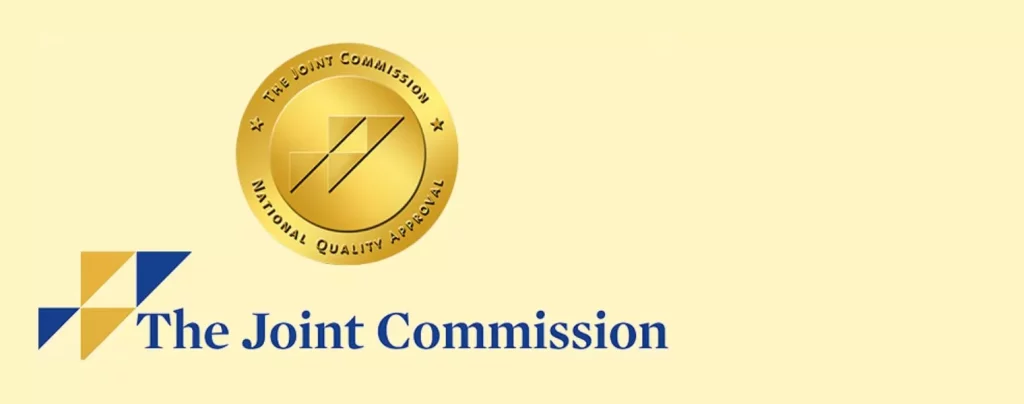What is a Rehab Accreditation?
Table of Contents
- What is a Rehab Accreditation?
- What Joint Commission Accreditation Means to You and Your Loved One
- The Accreditation Process for a Health Care Organizations
- Getting Accredited for Behavioral Health Care
- Associations that Accredit Rehab Facilities
- What is a Joint Commission Accredited Drug and Alcohol Rehab?
- How Many Accredited Addiction Treatment Programs Exist?
- How Does the Joint Commission Work?
- JCAHO Accreditation: What Is the Process?
- Joint Commission Accreditation Benefits
- How Do the Joint Commission’s Treatment Standards Work?
- Find an Accredited Alcohol or Drug Rehab to Meet Your Needs
- Medically Reviewed By
When addiction treatment programs hold accreditations, they are required not only to meet state licensing requirements, but also to adhere to certain policies, guidelines, and standards of care and practice set by an organization known for its reputation as a third-party authority in the field of addictions and mental health.
In order to achieve standards of excellence in client care, the facility undergoes a lengthy evaluation process. This signifies that you or your loved one will receive quality healthcare services. Rehab treatment facilities are governed by a number of accreditation bodies.
Keep reading to find out about the JCAHO accredited drug rehab process, and why you may want to consider choosing Joint Commission accreditation for your facility, both as a client and as ownership.
What Joint Commission Accreditation Means to You and Your Loved One
When a provider receives Joint Commission Accreditation, it demonstrates their dedication to operating a quality program that offers comprehensive service to those seeking drug and alcohol treatment.
When a provider receives Joint Commission Accreditation for its treatment center, it demonstrates a provider’s dedication to satisfy the standards of the quality treatment process and care in addiction therapy practices that are often more comprehensive than the state requirements to become a licensed facility.
Further, accredited treatment centers are regularly re-evaluated by their accrediting agency in order to ensure they are continually learning and growing.
The Accreditation Process for a Health Care Organizations
During the accreditation preparation and accreditation process, accrediting bodies visit and evaluate the facility and staff. A number of practices are evaluated in this study, including daily operations, management, staffing, training, developing policies and procedures, developing safety plans, providing residential and treatment areas, scheduling programming, and assessing the effectiveness of clinical services and therapies provided.
What Can I Expect from Accredited Substance Abuse Treatment?
Treatment programs that are accredited offer the following benefits:
- Clients are treated with a person-centered approach
- Addiction and co-occurring mental health disorders are treated by a staff who meets the appropriate training standards
- Safety and health-related emergency plans for facilities
- Critical incident reports, emergency drills, and documentation
- Quality improvement activities are emphasized
- Practices for safe rehabilitation
- Standards of policy and procedure compliance
- Competence in working with special populations
- Coordinated care and integrated services
- A healing environment that is protected
- Stabilization of the client’s health, psychiatric treatment, and support
- Interventions based on research
Getting Accredited for Behavioral Health Care
It takes years of preparation before the accreditation body visits a facility after a provider decides to pursue accreditation.
As well, accreditation can be expensive, so not every medical facility is accredited despite its potential to differentiate itself from the competition.
Accreditation is defined as:
- In addition to conducting an audit of the facility’s management and staff credentials, we also reviewed the program practices and treatment outcomes.
- Educated and trained staff members meet the requirements of accreditation bodies.
- The program also treats co-occurring mental health disorders in addition to addiction.
- Treatment facilities provide addiction therapy according to industry standards.
- Accreditation bodies certify that the facility meets safety standards for clients and employees.
- A drug treatment facility operates and manages according to a set of best practices and procedures.
- Training is provided to facility staff to ensure HIPAA compliance.
Associations that Accredit Rehab Facilities
Rehabilitation facilities are accredited by a number of agencies, but two of the most well-known accreditation bodies for addiction treatment programs are the Joint Commission, formerly known as JCAHO, and the Commission on Accreditation of Rehabilitation Facilities (CARF). Addiction programs typically receive accreditation from these two groups.
The CARF Accreditation
Founded in 1966, CARF is an international non-profit accreditation organization that evaluates health and human services such as aging services, behavioral health, child and youth services, work and community service, medical rehabilitation, and inpatient rehabilitation programs.
Among health and human services professionals, CARF accreditation carries a great deal of weight. An application is thoroughly reviewed and inspected by surveyors to ensure policies and procedures are consistent. In addition, insurance companies require that rehabilitation services be accredited by CARF.
Addressed in its mission statement, CARF strives to “promote the quality, value, and optimal outcomes of services through a consultative accreditation process and continuous improvement services that center on enhancing the lives of persons served.” CARF-accredited facilities and service providers abide by CARF’s core values that all people deserve to be treated with respect, have access to high-quality services, and utilize informed choices.
The Joint Commission
Over 22,000 healthcare organizations and programs in the United States are Joint Commission-accredited drug and alcohol addiction treatment center locations. The Joint Commission has been recognizing drug and alcohol rehab facilities since 1951.
It is an organization that evaluates and challenges healthcare organizations, facilities, and professionals to provide the highest quality as well as value. The Joint Commission was previously referred to as the Joint Commission on Accreditation of Healthcare Organizations (JCAHO).
What is a Joint Commission Accredited Drug and Alcohol Rehab?
In order to determine compliance with Joint Commission standards, surveyors from the organization visit hospitals, laboratories, and other healthcare facilities a minimum of once every three years (every two years for laboratories). JCAHO-accredited rehabs make a commitment to uphold standards, as well as continuous methods of monitoring and improvements.
These organizations and facilities use self-assessment tools to maintain standards and compliance. The Joint Commission accredits a number of programs, including:
- Healthcare is provided on an ambulatory basis
- Communities that provide assisted living services
- The field of behavioral health
- Hospitals with critical access
- The provision of home healthcare
- The hospital
- Laboratory services
- Nursing care centers
- Pharmacies
Do Facility Accreditation Fees Exist?
Few accreditations, certifications, or worthwhile industry memberships are free. When a facility decides to undergo accreditation or certification, it makes a financial commitment to provide quality care.
How Many Accredited Addiction Treatment Programs Exist?
How prevalent is accreditation in substance abuse treatment facilities? For the National Survey of Substance Abuse Treatment Services, in 2020, 16,066 addiction treatment programs provided information voluntarily about their programs. 30% of these programs were accredited by CARF, 23% by the Joint Commission, and 891 facilities did not hold licenses or accreditations.
How Does the Joint Commission Work?
Over 22,000 healthcare programs and organizations have been accredited and certified by the Joint Commission in the United States. This organization accredits hospitals, laboratories, addiction treatment programs, and other programs.
As the main regulatory body for the healthcare industry in the country, the Joint Commission sets standards. Accreditation by the Joint Commission is earned through a rigorous process by JCAHO-accredited treatment facilities.
JCAHO Accreditation: What Is the Process?
An on-site survey is required for rehab centers to become accredited through Joint Commission approval. Every three years, the survey team reviews and evaluates the rehab center’s practices to maintain Joint Commission accreditation.
Patient care is the focus of the survey process, which is driven by data. To ensure employees maintain a consistent quality of care, the survey will both evaluate the organization and provide “good practice” guidance.
A second unannounced survey will be conducted between 18 and 36 months following the initial survey. It is unknown when the survey will be conducted at the rehab center. In this way, the organization maintains “good practices” on a day-to-day basis without having to prepare for a survey.
Quality Check, the online guide for finding Joint Commission-accredited companies, will list the rehab center once accreditation is official.
How Does the On-Site Survey Work?
During on-site surveys, the Tracer methodology is the foundation. Rehab centers are assessed based on the care standards of real patients, residents, and individuals using the Tracer methodology. During a treatment program, “Tracers” monitor a patient’s progress to determine effectiveness and quality.
As part of the Tracer methodology system, the rehab center is also assessed on how efficiently it communicates across departments during the recovery process.
Among the other items included in the onsite survey are:
- Meetings with leaders
- A brief introduction to the organization
- Process of competence assessment
- Visit the building/environment of the care sessions
- The survey team presents the survey results at the exit conference
In the event that the rehab center does not receive any requirements for improvement (RTFs) after the survey, accreditation becomes official. Before becoming officially accredited, a rehab center must submit a report showing how they’re improving.
Joint Commission Accreditation Benefits
It is the reassurance that clients choosing drug or alcohol rehab programs will receive high-quality care that makes Joint Commission accreditation so valuable. The accreditation of a rehab center assures potential patients and their families that they will be well-taken care of in a safe environment.
Accreditation by JCAHO has other benefits, such as:
- Competitive advantage in the drug rehabilitation industry
- In order to provide the best treatment to patients, we need to strengthen and improve our treatment program
- Recruiting and developing staff
- Increasing community confidence in the rehab center
- Offering practical tools to enhance or maintain the excellence of rehab centers while lowering insurance costs for both patients and centers
As part of its accreditation process, the Joint Commission focuses on patient safety and quality of care. In this case, the approval is a win-win situation for both the rehab center and the patient. With accreditation, the center ensures that patient care is consistently improved and provides a safe, stable, and supportive environment for patients.
How Do the Joint Commission’s Treatment Standards Work?
There are certain standards that govern the accreditation process. Evaluations of treatment centers can be guided by these standards in order to improve their performance. Rehab centers should be required to meet surveyable, reasonable, and achievable standards set by the Joint Commission.
The latest research provided by professionals and industry leaders helps shape the standards of treatment. To combat the country’s ongoing addiction problem, standards are updated as necessary.
As a result of the Joint Commission, rehab centers are required to meet countless standards, which include, but are not limited to:
- An assessment highlights information regarding any treatment from the past in addition to any challenges with relapse
- Relapse and poor behavior are not grounds for kicking someone out on a care-based discharge plan.
- Medication-assisted treatment (MAT) programs that provide methadone clinic support and buprenorphine treatment at consistent levels
- Finding how addiction has affected them socially, behaviorally, and professionally.
Find an Accredited Alcohol or Drug Rehab to Meet Your Needs
At Find Addiction Rehabs, we’re proud to say we partner with many accredited facilities, exhausting every effort to bring you only the highest levels of care from the most reputable facilities.
For more information about accreditation and for help in finding accredited treatment programs, please call us for a confidential discussion of your situation today!
* Disclaimer: Find Addiction Rehabs is not affiliated with or endorsed by the Joint Commission. Details about the Joint Commission and JCAHO Accreditation are intended for informational purposes only and are not an endorsement on the behalf of either the Joint Commission or Find Addiction Rehabs.
Deborah Tayloe is a freelance writer specializing in health and sciences. Deborah earned a B.S.Ed. in Secondary Education/English, accompanied by a Spanish minor. Her writing expertise allows her to craft engaging, impactful articles to help people be well.
In addition, she holds a fully accredited Certificate of Natural Medicine and is a certified Herbalist. Through her understanding of complementary medicine, Deborah helps medical professionals give people the information they need to embrace natural approaches to wellness.
When she’s not working, Deborah trains for 5K races and advocates for animal rights.






